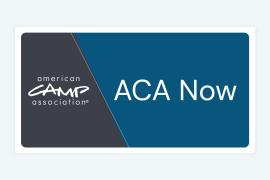Meals Provided to Employees
We understand that historically one of the benefits provided to camp counselors and other employees of camps — both out of necessity for providing proper oversight of the campers as well as providing an additional non-compensatory benefit to employees — was providing meals to the employees while working at the camp.
So long as the “convenience of the employer” test was satisfied, the meals provided to employees were also beneficial from a tax perspective, particularly for camps subject to federal income tax. Specifically, the employer received a tax deduction for the expenses associated with providing the meals to the employees while the value of such meals was also excluded from the employees’ taxable compensation.
Pursuant to federal regulations, a meal is provided for the convenience of the employer when it is provided on the employer’s premises and, if the employee is not charged for the meal, there is a substantial non-compensatory business reason why the employer provides the meal. This business reason is often because the employee couldn’t reasonably find meals within the permitted meal break, or in the case of camps, because the employees were eating with campers to provide appropriate and necessary supervision. Therefore, it is likely that camps often satisfy the “convenience of the employer” requirements when providing meals to employees.
However, the tax treatment of these meals fundamentally changed in December 2017, when Congress passed the Tax Cuts and Jobs Act Tax Reform, commonly referred to as tax reform. As a part of the tax reform package, after December 31, 2017, only fifty percent (50%) of the expenses incurred by an employer are allowed as a tax deduction for providing meals to employees under the convenience of the employer exception. The remaining fifty percent (50%) of such expenses are no longer deductible – thereby increasing a taxpayer’s federal taxable income by such amounts. Assuming no additional changes in the law, the result worsens after December 31, 2025, when the deduction is eliminated entirely for employers with respect to the expenses associated with meals provided for the employer’s convenience.
This change likely has the largest impact on camps subject to federal income tax, as these limitations on deductions will increase the amount of federal income tax owed on an annual basis. This will first impact camps on their 2018 tax return; however, the impact is not limited just to the actual payment of the additional tax, but also the administrative processes that likely will need to be implemented to ensure the cost of these employee meals are properly captured so that such amounts can be reported on the camp’s income tax return.
Notwithstanding the negative tax impact on the camps, tax reform did not change the impact on employees who receive meals that satisfy the convenience of the employer exception. These amounts are still excluded from the employee’s compensation for federal income and employment tax purposes. This exclusion from wages for employees still applies irrespective of whether the employer is a for-profit or tax-exempt camp.
Travel for Employees
We further understand that some camps often reimburse, in full or in part, the transportation costs that employees incur in travelling to and from camp.
While the recent tax reform bill implemented many changes, an employee's commuting expenses were not affected. The Internal Revenue Service has consistently taken the position that commuting expenses are personal expenses of the employee and, therefore, if such expenses were paid or reimbursed by an employer, such amounts should be included in an employee's wages. The tax treatment of such expenses were not changed or altered by tax reform.
In contrast, prior to tax reform, reimbursements for moving expenses (as compared to commuting expenses) could be excluded from the employee’s income if certain requirements were satisfied to be classified as a “qualified moving expense reimbursement.” Due to the nature of the qualified moving expense reimbursement requirements, it likely was difficult for seasonal camps to satisfy such requirements to exclude such payments from an employee’s income. This consideration, however, has been removed entirely as tax reform eliminated this benefit as well, and even qualified moving expenses paid by an employer are now taxable income for the employee.
Overall, these benefits that we understand are often provided by camps to employees now, in some cases, have significantly different tax treatment as a result of tax reform for both the camp, as the employer, and individuals, as employees. Despite this negative impact on camps, absent a legislative solution through Congress, camps will have to comply with these changes for tax years after December 31, 2017.
The American Camp Association and its affiliates do not provide tax, legal or accounting advice. This material has been prepared for informational purposes only. Please consult your own tax, legal and accounting advisors for advice.
Legal opinion provided by Ice Miller LLP. You can download the PDF version here.
How ACA Is Involved
ACA is engaged with our advocacy team in Washington working to raise awareness about these new tax issues impacting camps. ACA is actively educating Members of Congress about the negative consequences these tax changes with have for America's camps. ACA officials also met with the Treasury Department about these new tax matters. A federal legislative solution is the likely necessary remedy to these tax issues, and the ACA advocacy team is actively exploring and seeking options on Capitol Hill.
For questions, please contact ACA’s Government Relations Consultant, Ralph Forsht, at ralphforsht@gmail.com or 703-944-2739.
Photo courtesy of Cheley Colorado Camps, Estes Park, Colorado.




